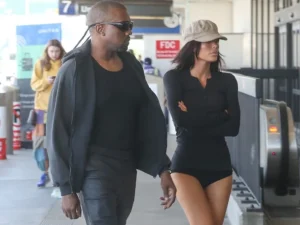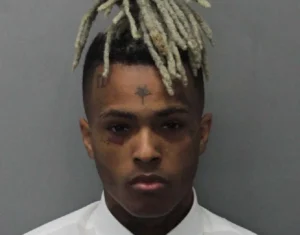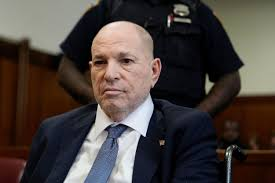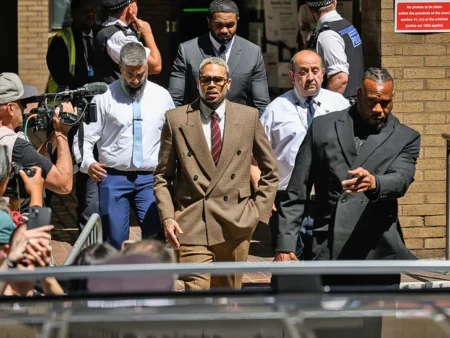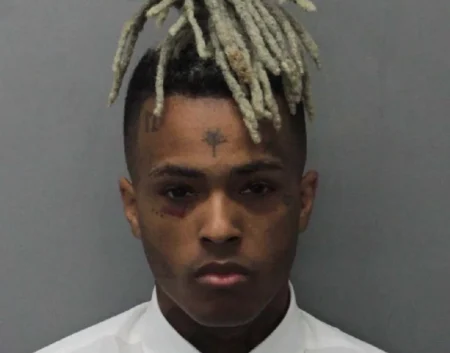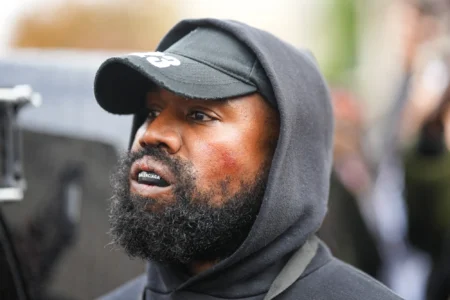In a surprising twist to the ongoing legal battle between Justin Baldoni and Blake Lively, Harvey Weinstein, the disgraced Hollywood mogul currently serving time in prison, has publicly thrown his support behind Baldoni. Weinstein is slamming The New York Times for its role in the legal drama between the two stars, accusing the paper of similar tactics to what he claims they used when reporting on the sexual harassment and assault allegations against him in 2017.
Weinstein’s Allegations Against The New York Times
Harvey Weinstein, who is serving prison sentences in both Los Angeles and New York City after being convicted of multiple sex crimes, issued a scathing statement to TMZ defending Justin Baldoni. Baldoni, the star of and director for the 2024 film “It Ends with Us,” has filed a $400 million lawsuit against Blake Lively and her husband, Ryan Reynolds, accusing them of trying to destroy his reputation through false allegations of sexual harassment.
According to Baldoni, The New York Times played a role in exacerbating the situation. He claims the newspaper “cherry-picked” details and manipulated communications to deliberately mislead readers and sway the public’s opinion against him.
Weinstein, who himself was accused by multiple women of sexual harassment and assault—leading to the #MeToo movement—sees similarities between his own legal battle and the one unfolding between Baldoni and The New York Times. In his statement, Weinstein said:
“Watching Justin Baldoni take legal action against The New York Times and its reporters — accusing them of manipulating communications and ignoring evidence that countered Ms. Lively’s claims — hit me hard.”
Weinstein went on to claim that the New York Times did the same to him when it reported on his sexual misconduct, alleging that the newspaper selectively “ignored critical context” that could have contradicted the allegations. “They cherry-picked what fit their story and ignored critical facts,” Weinstein said.
The Legal Drama Between Justin Baldoni and Blake Lively
The legal battle between Baldoni and Lively has captivated the public, with both stars filing lawsuits accusing each other of defamation and malicious intent. Blake Lively accused Justin Baldoni of sexual harassment and smearing her name in connection with their film project, “It Ends with Us.” Meanwhile, Baldoni countersued, claiming that Blake Lively and her husband, Ryan Reynolds, waged a smear campaign to destroy his reputation.
The crux of Baldoni’s argument in the lawsuit is that The New York Times misrepresented key communications and ignored crucial evidence that could have weakened Lively’s claims against him. This is where Weinstein finds a striking similarity to his own case, in which he claims the New York Times selectively reported on his behavior, failing to include exonerating information that could have altered the public’s perception of the situation.
Harvey Weinstein’s Regret Over Not Speaking Out Sooner
Weinstein admitted in his statement that he regrets not standing up for himself when he was first targeted by the media. Reflecting on his own experience with the New York Times, Weinstein confessed:
“I should have stood up and fought back then. I should have had the courage to speak out against the way the truth was twisted. That failure still haunts me.”
Despite his conviction and the ongoing legal ramifications of his actions, Weinstein expressed support for anyone who finds themselves on the receiving end of a media takedown, particularly those who have to face the legal consequences of public allegations.
The Legal Battles Continue for Weinstein and Baldoni
As of now, Harvey Weinstein remains incarcerated at Rikers Island, where he is awaiting a retrial for the New York City conviction after successfully appealing his initial sentencing. Meanwhile, Justin Baldoni is embroiled in a high-profile legal case that not only involves Blake Lively and Ryan Reynolds but also brings the New York Times into the spotlight once again.
Baldoni’s $400 million lawsuit could serve as a significant turning point in the ongoing debate over media responsibility and the impact of public allegations. For Weinstein, the case serves as a reminder of his own long-standing grievances with the media, which he claims played a pivotal role in shaping his public downfall.
The Future of the Case: What’s Next?
With both Weinstein’s and Baldoni’s legal battles continuing to unfold, it remains to be seen how the New York Times will respond to these mounting allegations of journalistic bias. As of now, Megan Twohey, one of the reporters behind the original Baldoni-Lively article, has yet to comment publicly on Weinstein’s remarks.
For those involved, the case highlights the complexities of media coverage, public relations, and the personal and professional toll of legal battles that center around serious allegations.

